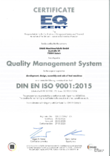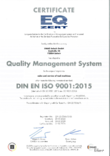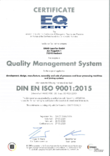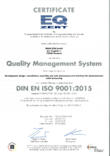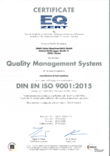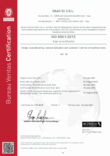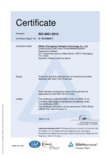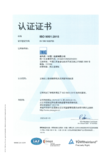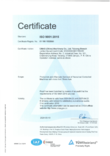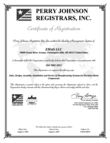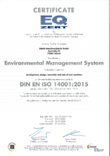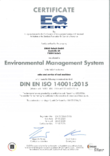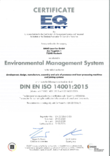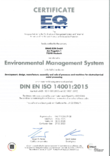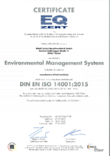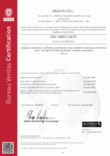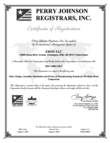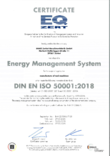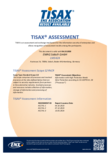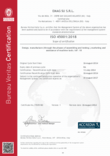Certifications of the EMAG Group
Certifications have a high priority in the EMAG Group. Processes are illuminated and reviewed by external certification partners. In the areas of quality management, environmental management and energy management, certifications are particularly relevant as they certify compliance with recognized best practices. For the EMAG Group, which has long been committed to environmental responsibility, compliance with these standards is a high priority.
Quality management
Quality management is an integral part of the EMAG Group's business activities and is ensured by the existing management system according to DIN EN ISO 9001. This internationally recognized standard for quality management systems ensures that companies act in a customer-oriented manner and continuously improve in order to increase customer satisfaction. The quality management system ensures that the products and services of the EMAG Group are provided at a consistently high level.
Environmental management
The EMAG Group has taken extensive measures to protect the environment and was certified to DIN EN ISO 14001 for the first time in mid-2004. This certification, an international standard for environmental management systems, ensures that companies deal responsibly with their environmental impact.
The EMAG Group has set itself the task of continuously reviewing, evaluating and improving the impact of its operational processes and products on the environment. This also includes ensuring proper and certified waste disposal. In addition, the company takes all necessary measures to avoid environmentally relevant incidents and accidents and to minimize their effects, and naturally complies with all relevant environmental laws and regulations.
Other areas
In addition to quality and environmental management, our integrated management system covers other central areas. These include systematic energy management to optimize our energy consumption, a modern IT infrastructure to support our business processes, and other cross-departmental management tasks. These aspects are continuously developed and integrated into our existing systems.


